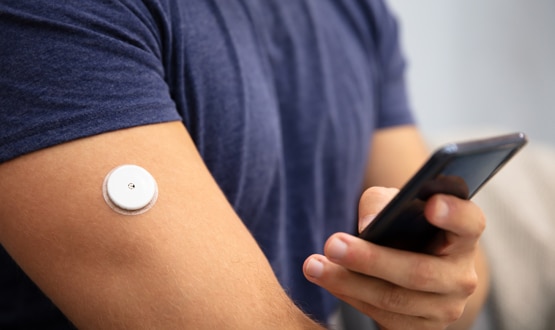Robotic heart and 3D ‘map’ among finalists for £30m BHF grant

A soft robotic heart, cardiovascular health tech and 3D images are among the shortlist of a £30 million British Heart Foundation research grant to “turbo charge” the charity’s work.
The charity’s Big Beat Challenge is a global initiative to galvanise researchers and inspire transformational solutions to tackle cardiovascular disease – the world’s biggest killer.
The shortlist of research proposals features a soft biocompatible robotic heart to provide a viable cure for the escalating epidemic of heart failure; a 3D “map” to find and develop immunotherapies against heart attack and stroke; and a project harnessing new technologies, including AI and wearable tech, to create a cardiovascular digital twin.
Professor Nilesh Samani, medical director at the British Heart Foundation (BHF), said: “Heart and circulatory diseases remain the number one cause of death worldwide.
“We’re taking small steps forward every year but what’s needed is a giant leap, which won’t be achieved by a business-as-usual approach.
“The Big Beat Challenge embodies our ambition to turbo-charge progress and could lead to its own ‘man on the moon’ moment. I have absolutely no doubt the winning idea will define the decade in their area.”
[themify_box icon=”info” color=”gray”]
The final four research proposals:
Soft robotic heart: Researchers plan to create a solution for heart failure by developing a hybrid heart. They will design, build, test and implant a hybrid heart that consists of a soft robotic shell that forms artificial muscles and sensors to enable natural motion, and a tissue-engineered lining to make sure all the surfaces in contact with blood are safe. The energy transfer will be wireless. The vision is that this could replace the need for human heart transplantation. Led by Jolanda Kluin, Professor of Translational Cardiothoracic Surgery at the University of Amsterdam, Netherlands.
Mapping and treating atherosclerosis: The team will use cutting-edge technologies to build the first 3D “Google map” of human atherosclerosis – the fatty deposits that develop in arteries – to gain new understanding into how and why the immune system causes the disease. This deep mapping work will reveal new targets for immunotherapy to combat atherosclerosis and may lead to a new wave of medicines and vaccines that can prevent heart attacks and strokes. Led by Professor Ziad Mallat, BHF chair of cardiovascular medicine at the University of Cambridge, UK.
Next generation cardiovascular health tech: The team will develop wearable technology that can be used in daily life to capture more data than ever before. From symptoms and physical activity to heart function and air quality, this information could be used alongside genetic and healthcare data to transform diagnosis, monitoring and treatment of heart and circulatory diseases through the creation of a digital twin. Led by Professor Frank Rademakers, chief medical technology officer at University Hospitals Leuven, Belgium.
A cure for inherited, killer heart muscle diseases: The researchers will develop a treatment that targets and silences the faulty genes responsible for cardiomyopathies – diseases of the heart muscle that can lead to sudden death at an early age. By combining a deep understanding of underlying genetic mechanisms with new technologies, the team aims to stop the progression of the damage caused by genetic heart muscle diseases, or even reverse the damage. Led by Professor Hugh Watkins, BHF chair of cardiovascular medicine at the University of Oxford, UK.
[/themify_box]
The Big Beat Challenge was launched in August 2018 and challenged researchers to form international, multi-disciplinary teams for research proposals that would be transformative for cardiovascular disease.
The proposals were required to have a clear route to patient benefit and would only be possible with funding on this scale.
The BHF received 75 applications from 40 countries. Three panels, including public and patient, scored the applications to whittle down the top for.
Each project has now been given seed funding t further their research before the winner is decided.
Dame Anne Glover, president of the Royal Society of Edinburgh and independent advisory panel member, said: “All four shortlisted applications have identified big problems that desperately need to be addressed.
“They’ve submitted ideas that are different to anything the BHF has funded before, and the raw ambition, boldness and creativity of all teams is inspirational.
“Each member of the international advisory panel brings unique expertise and vision from the world of science, research and beyond. We’re intrigued to see the teams’ ideas flourish into full proposals and decide who will be given the chance to write their names into the history books by transforming heart and circulatory disease research.”
Professor Samani added: “This is high-risk, high-reward research. It represents the single biggest investment in pioneering science in the BHF’s 60-year history. In an ideal world, we’d like to fund all four as each one has the chance to make a monumental impact.”
The teams will now start work on full applications, with a winner expected to be announced at the end of 2020.




